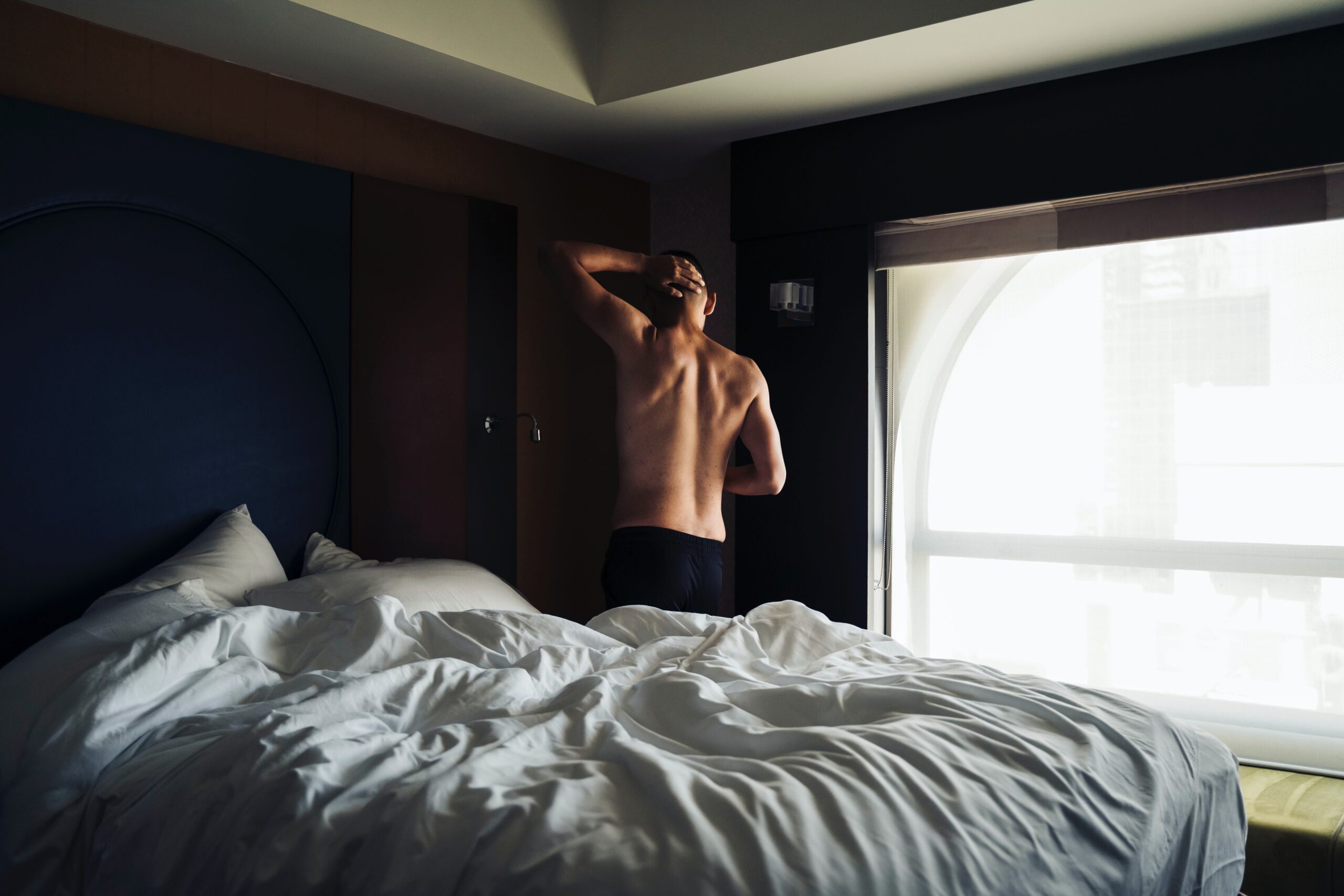
Healthy American adults should accomplish seven hours of sleep per night to feel well rested, both mentally and physically, according to the Mayo Clinic. Back in 1942, a poll found that 11% of adults did not get seven to nine hours of sleep per night. Today, however, only 41% enjoy a healthy duration of sleep, according to Gallup.
About 100 million Americans do not get adequate sleep.
What hinders restful sleep?
“Sleep disorder” is the term we use to describe the sleep disturbances that cause daytime drowsiness. Sleep may be impaired by an inability to fall asleep, difficulty staying asleep, or a feeling of tiredness that disrupts the ability to perform regular daily tasks, even when it seems that seven or more hours of “sleep” are obtained per night.
Not everyone who lacks the proper amount of sleep has a sleep disorder. Oftentimes, staying up too late causes daytime drowsiness. Too much caffeine can keep a person awake, while too much alcohol can cause excessive tiredness. The cure to these issues is discipline and, in some cases, a sleep drug for temporary use.
Another problem is shift work. When a person changes from day shift work to night shift work, altering his sleep schedule can prove difficult. In this instance, a sleep disorder is not at play.
Age also contributes to the inability to remain asleep and achieve the necessary REM (rapid eye movement) stage of sleep required for adequate rest. Older individuals can naturally develop an inability to achieve adequate sleep, sleeping in short periods interrupted by waking periods. In addition, the senior demographic often takes medications that cause sleepiness or alertness, which interfere with healthy rest. However, seniors with sleep apnea may experience overactive bladder. Using a CPAP often eliminates the urge for frequent urination and, thus, foster healthier sleep patterns.
Do you have a diagnosable sleep disorder?
Only a physician can diagnose sleep disorders. (Do not self diagnose because poor sleep may be related to a health condition or medication, rather than a sleep disorder.) A sleep study is required for clinical diagnosis of sleep disorders. This doesn’t necessarily mean you’ll need to spend the night in a sleep lab. Both physicians and dentists may rely on a home sleep test, which uses artificial intelligence (AI) to acquire data necessary for a sleep disorder diagnosis.
One such home sleep test is the Sunrise second-generation test. Like many home sleep tests, this device measures airflow (breathing) and oximetry (blood-oxygen levels) for a doctor to review when diagnosing a sleep disorder. However, the Sunrise second-generation test also employs a jaw movement sensor (worn on the chin). In some cases, jaw movement allows soft tissues inside the mouth and throat to block airflow. Knowing if this symptom occurs can help a doctor determine the best treatment.
Some physicians require an onsite sleep lab session, particularly for patients who have extreme sleep deprivation or a host of physical ailments. In an onsite sleep lab, brain waves, blood pressure, heart rate, electrical muscle activity, and eye movements may also be monitored.
Your doctor will advise the best option for you: onsite lab or home sleep test.
Of the 80+ sleep disorders on record, the most prevalent conditions in adults are:
- Insomnia – The most common sleep disorder, insomnia is the inability to fall and/or stay asleep.
- Sleep apnea – With three subtypes, sleep apnea is defined by a patient stopping breathing for 10+ seconds at a time, potentially hundreds of times per night. Obstructive sleep apnea (OSA) can often be treated with dental sleep medicine, instead of surgery.
- Restless leg syndrome – This infuriating condition occurs when legs tickle, tingle, feel “asleep,” jump, and cause the sensation of needing to move repeatedly during the night.
- Hypersomnia – This is an inability to remain awake. Narcolepsy is the most well known of these conditions. The primary symptom is extreme fatigue.
- Circadian rhythm disorders – This group of disorders cause issues with the sleep-wake cycle, so the patient does not fall asleep or wake up at the desired times.
- Parasomnia – These disorders include acting peculiarly while sleeping, falling asleep, or waking. Sleepwalking, sleep talking, and sleep eating are examples of parasomnia behaviors.
Treatments for Sleep Disorders
General good health recommendations are the first line of defense against sleep disorders. For instance, limit or reduce alcohol, caffeine, and tobacco. Additionally, discipline yourself to go to bed and wake up at set times. You may be advised to darken your room, get a new mattress or pillow, and try over-the-counter sleep aids like diphenhydramine (in Benadryl) or natural melatonin.
If you suffer from obstructive sleep apnea, the most common type of sleep apnea, a sleep dentist may be able to help you overcome your condition. Dentists like Dr. Timothy Mickiewicz of Sacramento, CA, prescribe an easy-to-wear oral device known as a sleep guard or nightguard. Usually made of plastic, these devices keep front upper and lower teeth from touching. When front teeth do not touch, back teeth cannot touch. A nightguard eliminates the common destructive OSA symptom of teeth grinding (bruxism). It also keeps the lower jaw in a slightly forward position so that soft tissues and the tongue don’t block airflow.
Other suggestions include:
- Cognitive behavioral therapy (CBT)
- Continuous positive airway pressure (CPAP) machine use
- Bright light therapy (morning)
- Prescription sleeping pills (should not become dependent on these)
Do you have a sleep disorder?
In Sacramento, CA, Dr. Mickiewicz uses a proven home sleep test system to aid in diagnosis of sleep disorders. Once your test results come in, Dr. Mick can determine whether you need a nightguard or referral to a sleep physician for treatment.
Contact Dr. Mickiewicz’s dental sleep medicine office today.


